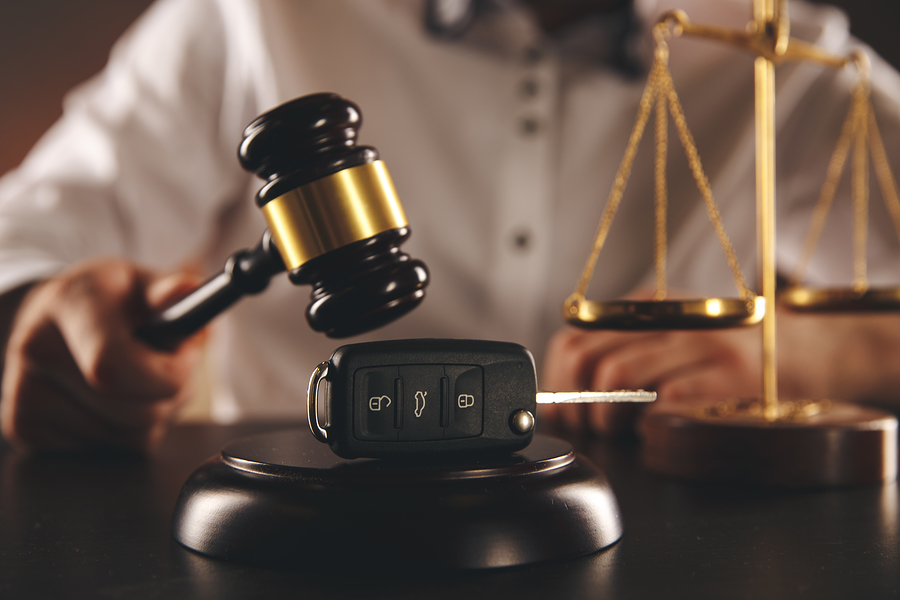Coverage Of Personal Injury Protection In Florida
 Michael Babboni
Personal Injury
Vehicle owners across America are required to own automobile insurance, with state-specific terms and conditions that drivers must be aware of. Florida is one of ten states with personal injury protection (PIP) insurance. Together with the “no-fault” law in Florida, it ensures that the injured person will receive compensation regardless of who is at fault in an auto accident or a car crash.
Michael Babboni
Personal Injury
Vehicle owners across America are required to own automobile insurance, with state-specific terms and conditions that drivers must be aware of. Florida is one of ten states with personal injury protection (PIP) insurance. Together with the “no-fault” law in Florida, it ensures that the injured person will receive compensation regardless of who is at fault in an auto accident or a car crash.If you drive in St. Petersburg, Florida, you should have PIP as it is required by the law. In order for you to use it properly, you must be well informed first. In this article, we answer some of the frequently asked questions (FAQs) regarding what PIP insurance in Florida covers.
What is Personal Injury Protection?
Florida Statute 627.736, also known as the Florida PIP Statute, provides injured drivers with up to $10,000 immediate medical coverage for injuries sustained in an accident. In a sense, the law is an exercise in efficiency: it intends to reduce injury payment delay and accident faults to be established at court. This measure may help with the relatively high rate of car accidents in Florida.
The no-fault law assumes that in any accident, every driver involved is at fault. It is just a matter of determining the percentages of fault of each party, and that is where an auto accident lawyer comes in.
Who Is Covered Under Personal Injury Protection?
In the case of a car collision, the following may be covered by PIP, subject to legal limitations:
• As the vehicle owner and policyholder, you are automatically covered whether you were the driver or a passenger when the accident occurred.
• With extended PIP, your family members can receive benefits, too. Your children are covered if they get into an accident while in your car or on their school bus.
• Other persons you permit to drive your car may also be insured. If they are a vehicle owner in Florida and have their own PIP policy, their insurance company is financially liable for them.
• If a passenger of yours is not a vehicle owner, they are covered under either the PIP policy of a relative they live with or the other driver’s policy (in the absence of a vehicle-owning relative at home).
• Pedestrians or bicyclists are covered as well. If they don’t have PIP or a relative with PIP, the at-fault driver’s policy will be used.
It is important to note who is not required to get PIP for themselves and their passengers:
• Motorcyclists and drivers of other vehicles with less than four wheels)
• Car service providers, such as cab or limousine drivers
• Drivers of vehicles that are not self-propelled, such as inoperable cars or mobile homes.
What Expenses Are Covered By Personal Injury Protection?
Similar to other states such as Michigan and New Jersey, PIP insurance in Florida includes medical costs, lost wages, and death benefits in its coverage.
• Medical Costs: These involve medical and ambulatory services, hospital fees, surgeries, diagnostics, and rehabilitation.
• Lost Wages: You are to be paid 60% of lost wages up to $10,000. This includes cost considerations for tasks you can’t complete due to your injury, such as child care and housecleaning.
• Death Benefits: Your surviving family members will receive $5,000 for funeral or burial expenses.
In Florida, 80% of your total medical bill from an auto accident is covered by PIP. For example, if your medical costs reach $10,000, PIP covers $8,000. What if your medical costs exceed $10,000? Under stricter rules, you may be compelled to file a personal injury lawsuit to get the rest of the costs covered. A St. Petersburg personal injury lawyer can help you deal with that kind of situation.
For non-emergency treatments, PIP restricts the coverage to $2,500. In the aftermath of any auto accident, make sure you receive treatment within 14 days. Furthermore, massage therapy and acupuncture no longer count under medical costs. These limitations and more were implemented under the amended Florida personal injury protection laws.
